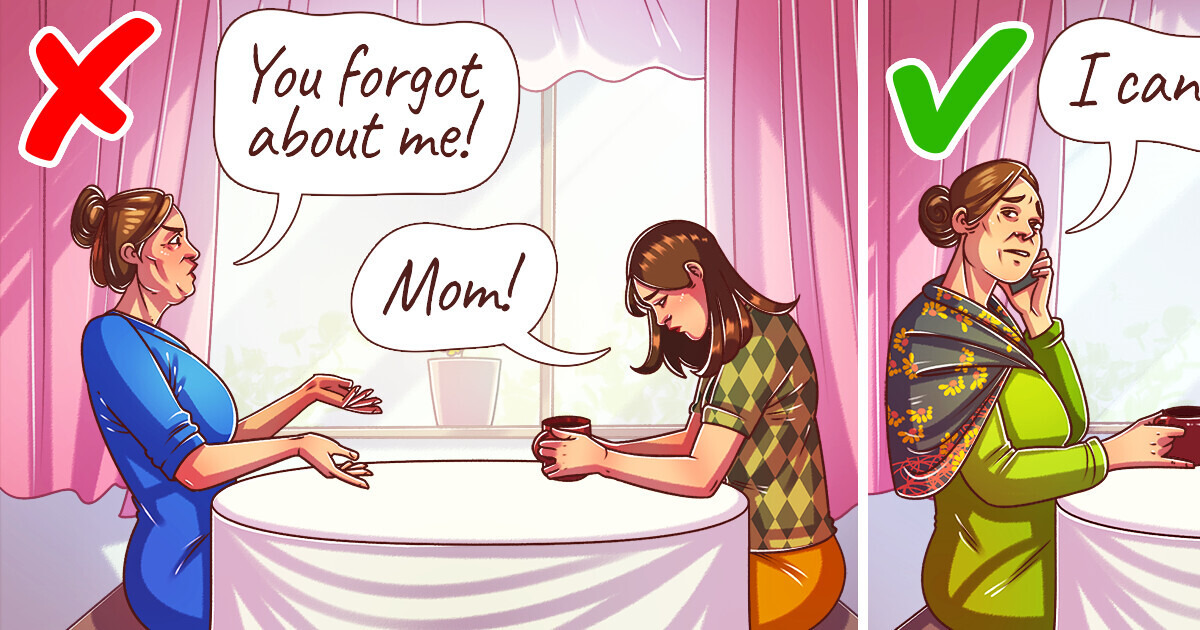12 People Who Are Still Haunted by Their Medical Visit


You’re not alone in fighting with your parents about anything from dinner plans to global issues. We’ve put together 9 tips on how you can improve your family relationships to make them stronger and more harmonious.
If you want to improve the quality of your relationship with your parents, don’t ask them to do things for you that you can do yourself. For example, every time you ask them for money or complain about someone, you show your dependence on them as a child.
But even though this is the easiest way to solve problems, it can create an imbalance in the relationship where your parents will still see you as a child. The more responsibility you take on, the more your parents will treat you as an adult.
Be sure to voice your concerns about their behavior. You may keep your negative feelings inside to avoid conflict, but the time will come when you snap at something small, creating even more tension and misunderstanding. Talk about your feelings gently and respectfully, and try to work with your parents to find a way out of the situation.
Parents are the first people in our lives who have contributed to our development, monitored our progress, noticed what we are predisposed to, etc. In adulthood, when we already have a clear idea of ourselves and our interests, we can look for common ground with our parents in the form of spending time together. This will help improve the relationship and feel more close with them.

Accept the fact that they are different from you. Often, people can’t find common ground because they don’t consider the other person’s point of view. Once you can accept the other person’s position and see the reasons behind it, it will be easier to compromise.
Accept the fact that your parents are different. They grew up with different social norms and ways of thinking. Think about how their lives may have been different from yours and how that leads to relationship problems. Not only will this help you not to question your choices and constantly seek parental approval, but it will also help you understand their feelings and the reason why they may not support you in a certain way.
Sometimes, because of strong resentment, we forget all the good things our parents have done for us since we were born. No one is perfect — everyone makes mistakes.
Try to realize this and thank your parents (or at least admit it to yourself) for all the good things they’ve done. Express gratitude for the little things they do for you now, like cooking your favorite meal. This will help reduce tension and resentment, if you have any.
You can’t build a healthy relationship if you only focus on what they have done wrong. Look at the problem as something separate, not part of your parents, and try to work with them to solve it. An experienced psychologist recommends, “Focus on the problems, express your needs and point of view clearly. Use first-person statements (’I’ statements) and avoid personal attacks, even if you are being attacked.”

The relationship improves when both parties can accept feedback and talk openly about how they feel about it. The parent can ask the child to call early in the evening, to not use the phone when talking to them, or to say what topics they would like to avoid. The adult child, in turn, can tell the parent what conversations are comfortable or uncomfortable to them, and ask not to be spoken to in a certain tone of voice.
Accepting feedback is the cornerstone of a healthy relationship. It means accepting responsibility for your part in causing some trouble or discomfort for the other person.
Unhealthy conflict styles can come from childhood and seem difficult to change. Silence, passive aggression, yelling, ignoring problems and guilt are just a few of the destructive patterns that negatively affect relationships. Each party needs to see their role in the bickering process and start responding differently. In order to change the established conflict scenario, one must first notice its destructiveness and then try to react differently.

If you know that certain topics are likely to provoke a strong reaction or lead to a serious quarrel, try to avoid them. Usually these discussions bring nothing but negativity and tension. If over the years your parents’ position on certain issues has not changed, then persistent arguments and demands for understanding or recognition are hardly worthwhile. It’s better to save your nerves for other common plans and pleasant communication.
And here are a few family conflict stories that might leave you in shock.











